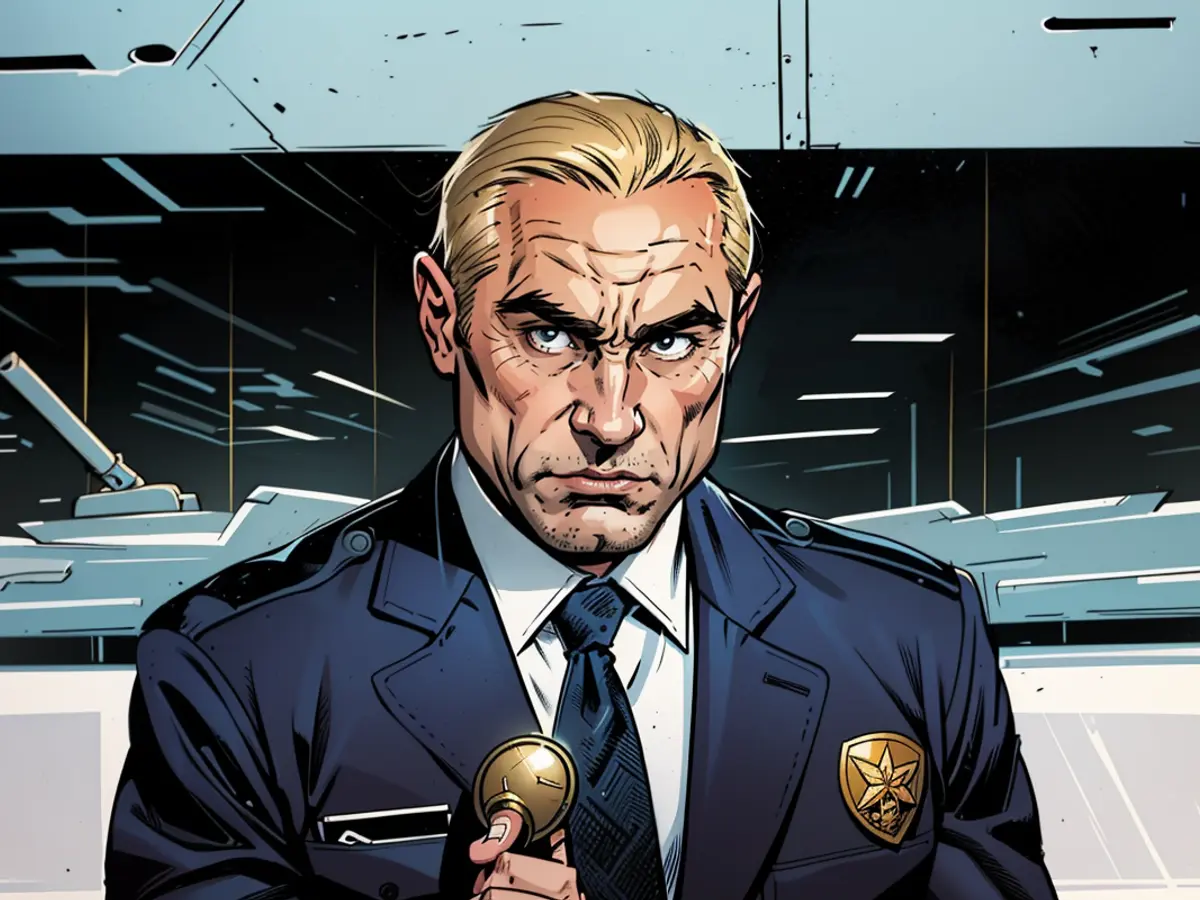Once more, Putin articulates age-old warnings against NATO
Whenever discussions about weapon deliveries or assistance for Ukraine arise in the West, strong opposition is heard from Russia. Many analysts argue this is to instill fear and hinder aid, a strategy that sometimes works. Currently, there are renewed threats due to potential long-range attacks.
Russian President Vladimir Putin stated that if the West agrees to allow Ukraine to use long-range weapons against Russian targets, it would imply that NATO is "at war" with Russia. "This would transform the nature of the conflict. It would imply that NATO countries, the USA, and European states are at war with Russia," Putin told a state TV reporter.
The decision, according to Putin, revolves around whether "NATO countries are directly involved in the military conflict in Ukraine or not." If Ukraine receives approval, Russia "will take appropriate measures based on the altered nature of the conflict and the threats we will face," Putin added.
Similar fierce tones have been used by Russian officials in the past. Regardless of tanks, fighter jets, or missiles, Moscow has issued numerous warnings about escalations, alterations in the nature of the war, or even nuclear threats since its invasion of Ukraine.
ISW: Russia aims to Intimidate
According to the Institute for the Study of War (ISW), published in March of this year, Russia primarily aims to postpone the provision of military aid. Consequently, Russia is reinforcing narratives about the risks of providing aid - for instance, through nuclear blackmail and "other ambiguous threats." Last fall, information campaigns targeting the delay of tank and other crucial Western capabilities to Ukraine partly succeeded.
The researchers asserted that it's "unlikely" that Putin would actually use nuclear weapons "solely to retaliate against Ukrainian strikes on Russian territory with Western rockets." Even when Ukrainian drone attacks on Russian territory occurred, he did not resort to this.
Is Moscow worried about attacks?
The intensified stern remarks from Putin towards NATO could also suggest that Moscow is genuinely apprehensive about attacks using long-range weapons, which could threaten numerous military targets on Russian soil.
Previously, Putin has hinted at certain export restrictions on metals, including uranium, as retaliation. Recent indications from the US imply a potential approval of long-range attacks. According to "Guardian" reports, Britain has already decided in favor of permitting strikes with Storm-Shadow missiles on Russian territory, though this has not been publicly announced to avoid unnecessary provocation.
On Friday, British Prime Minister Keir Starmer and US President Joe Biden are scheduled to meet in Washington. The approval of long-range attacks, a request from Ukraine for months, is expected to be a topic of discussion. Biden recently stated that they are "working" on approval.
In response to the potential approval of long-range attacks by NATO countries, Russian President Vladimir Putin has threatened to take appropriate measures, suggesting that such actions would transform the nature of the conflict and make NATO countries, including the USA and European states, de facto at war with Russia. According to the Institute for the Study of War (ISW), Russia's primary aim is to postpone the provision of military aid by instilling fear through nuclear blackmail and other ambiguous threats. This strategy, as seen in the past, has been successful in delaying tank and other crucial Western capabilities to Ukraine.








